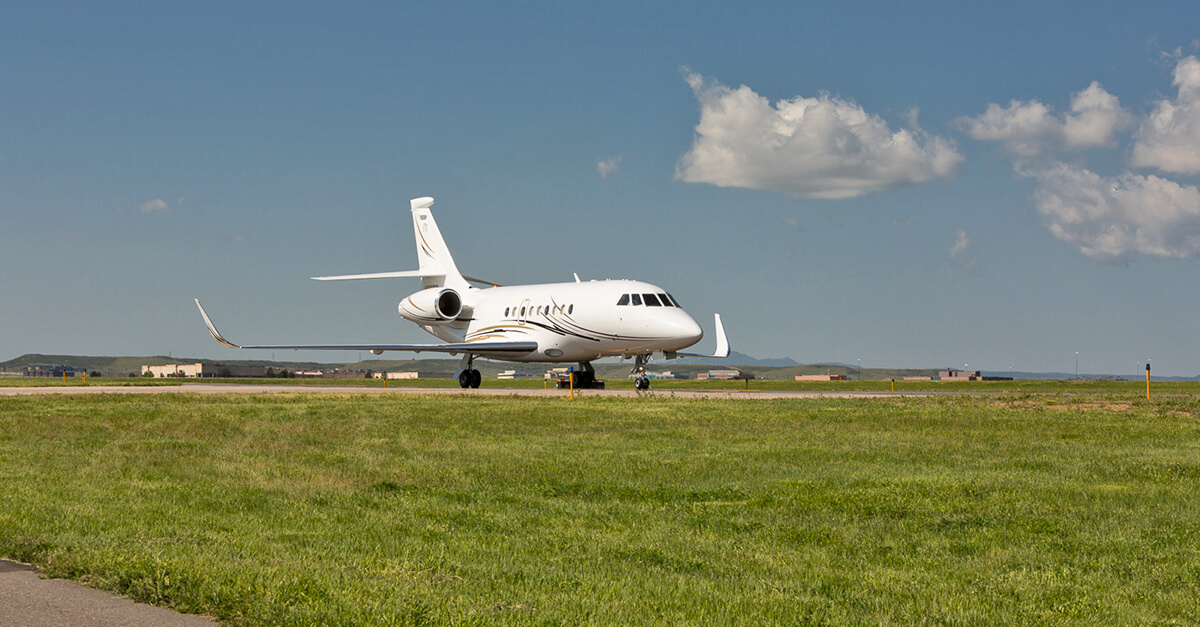
April 23, 2021/date]
The benefits of sustainability initiatives, and best practices for operators considering their own programs, were the subject of an Earth Day edition of the NBAA News Hour, which examined efforts across the business aviation community to introduce environmentally sustainable practices to the industry.
Kerri Russi, cabin safety manager and aviation sustainability lead at Adobe, stressed the importance of embracing sustainability, regardless of how incremental the changes may seem to be.
“Making little changes in the cabin, whether it’s going from paper to digital, or using reusable or compostable products, may feel insignificant in comparison to utilizing sustainable aviation fuel [SAF], but if we all act consistently and get each functional group to participate in building a culture of sustainability, that is what makes a sustainability program successful,” she said.
There are challenges to consider, added Russi. “You have to consider how to implement sustainability initiatives without compromising customer experience,” she said. “We don’t want to be so rigid that we forget why we’re here in the first place.”
Kathy Julien, a pilot for Starbucks, noted that her introduction to sustainability, particularly to SAF – which her flight department now actively seeks as a fuel source – was assisted by the broader business aviation community.
“I started calling around, trying to find out more about SAF, particularly from operators who were further along in the process than I was at that time,” explained Julien. “They advised me to see if we had a sustainability team already in place, and sure enough, there was, so I teamed up with them. They didn’t know anything about us, and I didn’t know a lot about them, so I’m learning more about composting and energy usage that we might have at the hangar, and they are learning about SAF and helping us to develop outreach to our state legislature to try to get some tax incentives.”
Sustainability initiatives need local and federal legislative support to succeed, said moderator Jessica McClintock, vice president, global accounts for aviation fuel management software provider FuelerLinx and chair of NBAA’s Young Professionals Council.
“If we are going to get cheaper SAF, we’ve got to get together to fight for it,” she said. “That means not only pushing your representatives, your airports and your specific fuel providers, it also means looking to Congress, too, to make an impact.”
Read more about NBAA’s advocacy efforts for an SAF blender’s tax credit.
Educational campaigns also are needed to help the business aviation community understand the benefits of sustainability, said Julien. She noted, for instance, that many people within the industry were unaware that SAF currently is mixed with Jet A and can replace traditional fuel without any changes to equipment, infrastructure or aircraft performance.
NBAA’s New Sustainability Program Announced
Earth Day also marked the launch of NBAA’s Sustainable Flight Department Accreditation Program, which will serve as an industry standard for validating leadership in sustainable flight operations across a host of key domains.
“We will start with a pilot program, and we’re excited to work with those participants over the next few months to refine the framework that we’ve put together for this new accreditation program,” said Stewart D’Leon, CAM, NBAA director, technical operations.
“We’ll have some big news and announcements on the full program for the entire membership in October at the 2021 NBAA Business Aviation Convention & Exhibition (NBAA-BACE).”
D’Leon explained that NBAA is complementing this new accreditation program by standing up an environmental subcommittee under the auspices of the maintenance committee to work on initiatives and goals that will help organizations and flight departments throughout business aviation.
Learn more about NBAA’s Sustainable Flight Department Accreditation Program.


 International Business Aviation Council Ltd.
International Business Aviation Council Ltd.